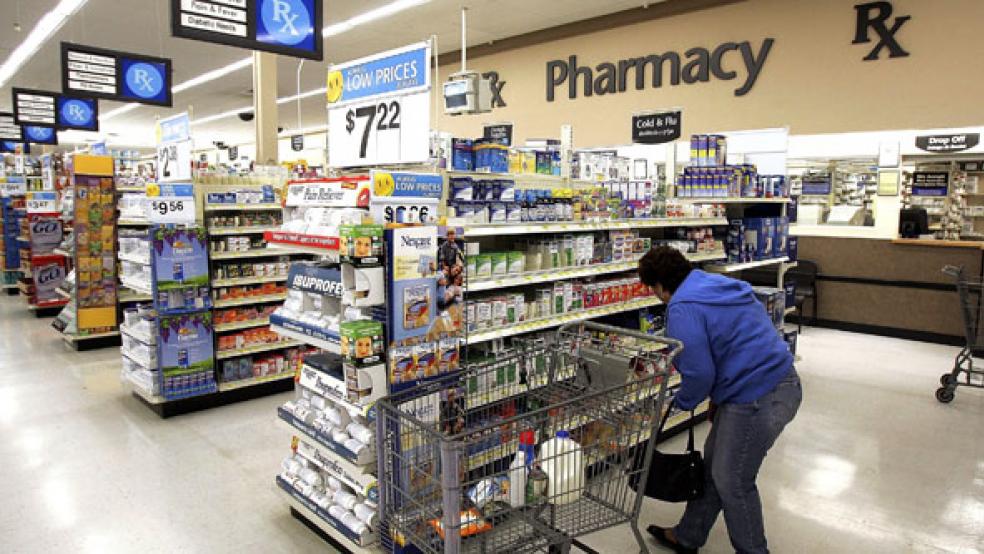My family's contribution to the $15 billion annual allergy business tallies up to well over $100 a month, but our costs - like many people's - are adding up differently this year.
We need nose sprays as well as antihistamines - generic Allegra for me, generic Zyrtec chewables for one kid and name-brand Claritin chewables for another (because she insists on grape). There are multiple doctor visits, all with $20 co-pays. Our bedding is covered, our air is filtered and we are overflowing in tissue boxes.
As they start sneezing, many Americans are finding out that their plans from pharmacy benefit managers Express Scripts Holding Co and CVS Caremark Corp no longer cover a slew of popular prescription asthma and allergy remedies.
One of those is the steroid nasal spray we were using. We either have to pay $160 a bottle for Veramyst (and with three of us going through about a bottle a month each, that would get quickly out of hand) or go with the generic alternative for a $20 co-pay.
Other medications that have changed status include Proventil, Ventolin HFA, Beconase AQ, Rhinocort Aqua, Zetonna, Omnaris, Qnasl and several varieties of Advair and Flovent. Also, Nasacort AQ recently went over-the-counter, and there is always a list of new name-brand medications that come out with generic versions.
All of this can change what you pay out of pocket. Nasacort, for instance, now costs about $12 a bottle, so if your co-pay was $20, you will save. Same if you have a high co-pay for name-brand drugs but pay less for generics.
Related: Hunger for Gluten-Free Foods Amounts to $7B a Year
Just switching one drug yielded "significant savings" for the Jensen family in Salt Lake City, Utah. Mom Andrea Jensen, a blogger, says co-pays for name-brand Singulair used to run $75 a month, and now are $10 for the generic. They buy a 365-pill supply of generic Zyrtec from the local Costco warehouse club store for about $14.
To control costs during allergy season, experts offer these suggestions:
Know why you sneeze
"A lot of people say, 'I sneeze, therefore I'm allergic,'" says Mike Tringle, a spokesman for the Asthma and Allergy Foundation of America. "You could be taking combinations of things that don't work."
Products are numerous and varied, with costs ranging from $2 for a bottle of generic saline spray to $1,500 for a Miele HEPA vacuum cleaner. "You can easily go overboard and end up paying a bundle," says Dr Sakina Bajowala, a physician who runs the Kaneland Allergy and Asthma Center in North Aurora, Illinois.
You need to know your triggers to figure out where to spend, she says. If your problem is dust mites, a HEPA air filter will not do much, but if you are allergic to pollen and mold, it could help.
Experts suggest at least a yearly visit to a doctor, and initial allergy testing.
Related: How Medicare Data Could Revolutionize Health Care
If you have specific, seasonal allergies, immunotherapy might save you money in the long run, despite a high up-front price, Bajowala says. Jensen agrees, saying insurance covered the bulk of her costs, with a $60 co-pay for serums, when needed.
Start before you sneeze
Most people do not like to fire up a medication routine until they absolutely need to, but starting your allergy regimen early has financial benefits. This season has been especially confounding in much of the United States because of lingering cold weather. "It feels like winter to our skin, but it feels like spring to our sinuses," Bajowala says.
Bajowala generally recommends patients start steroid sprays two weeks before symptoms typically strike and fast-acting antihistamines when the waterworks start.
Fail and reapply
If your insurance no longer covers your medication, you can appeal, but some companies will require you first to try the preferred medication and "fail" at it.
Just one of Bajowala's patients has appealed to an insurance company - and was approved, she says. Several others decided just to pay out of pocket for what they wanted. The rest seem to be doing just fine on the generic alternative offered. When switching patients to a new medication, Bajowala tries to give them samples first to make sure it works, before they invest in a whole supply.
Related: TeleHealth: Coming to a Smart TV Near You
When it comes to coupons, pharmacists might know best because they are more directly connected to payment, says Renata Taylor, Express Scripts' pulmonary practice leader. There are also independent websites, like GoodRX.com, that offer price comparisons at various pharmacies and link to coupons and special offers.
Bajowala's big advice for saving is to teach your kids to swallow pills because liquid medicine costs much more, she says. She taught her own kids at age 5.
The secret? "Practice with Tic Tacs," she says.


